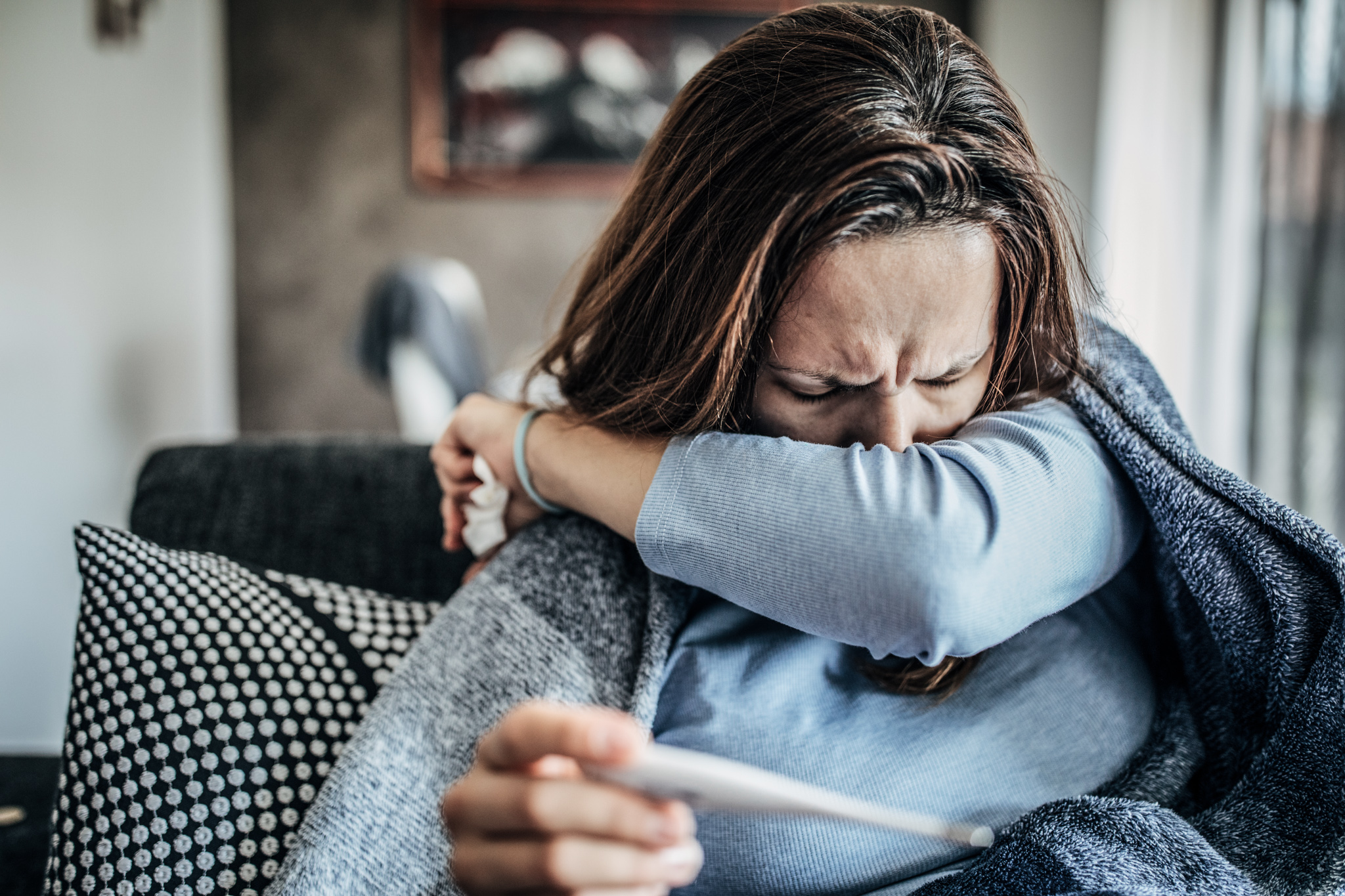You may be asking: What can I do at home if I have been diagnosed with COVID-19? Most people get a mild to moderate illness that does not require a hospital visit or any medications. If you or someone you know has been diagnosed with COVID-19, read below for guidance on how to care for yourself or a loved one.
Stay in Touch with Your Primary Care Provider
Call and follow up with your primary care provider through a video visit within 24 to 48 hours after you have been notified of the positive COVID-19 diagnosis. Do not go directly to your doctor’s office without calling them.
Separate Yourself from Others
Stay in a separate room with your own bathroom.
Monoclonal Treatment
Monoclonal Antibody Therapy is a treatment that mimics your body’s response to COVID-19, which can help boost your immune system. This treatment limits the spread and prevents your symptoms from progressing. Talk to your doctor to see if you are a candidate for this treatment.
Prevent the Spread
Prevent spread to others by covering your coughs and sneezes, washing hands frequently, disinfecting surfaces, and not sharing personal items. If you must be around other people or pets, wear a mask or cloth face covering.
Lie Down on Your Stomach
For those with a COVID-19 respiratory infection, consider lying down for a few hours in prone positioning (lying face down on the belly) to help improve lung function and oxygenation.
Note: This is not advisable for pregnant women, those with facial injuries, recent abdominal surgery, spinal disease, neurological disease, or other injuries. Please check with your provider first regarding this exercise.
Breathing Exercises
Breathing exercises are not proven to prevent the worsening of COVID-19 infection, but if you have COVID-19 respiratory infection they can help open parts of the lungs and dislodge the mucus. They can also help with reducing anxiety. Click here to watch a video for how to do this or read here for more lung exercises.
Vitamins
Many studies point to the beneficial effect of vitamin D on the immune system. Consider dietary supplements like Vitamin C, Vitamin D, and Zinc. Please keep in mind that these are not proven therapies for COVID-19.
Open Your Windows!
Keep the windows of your room open when possible by releasing stale air and introducing fresh air.
Monitor Your Oxygen Saturation with a Pulse Oximeter
A person with COVID-19 can have very low oxygen levels but otherwise appear well. Use a pulse oximeter to monitor oxygen saturation frequently while at home. Contact your doctor if your oxygen level falls below 94%!
Additionally, if you have trouble breathing, worsening chest pain, bluish discoloration of the lip, and/or worsening gastrointestinal symptoms, seek medical care immediately.
What Should I Do Once My Symptoms Have Gone Away?
When your symptoms have almost resolved, please follow up with your provider so you can be cleared to come out of quarantine.
For further COVID-19 testing and medical care, please click here.



